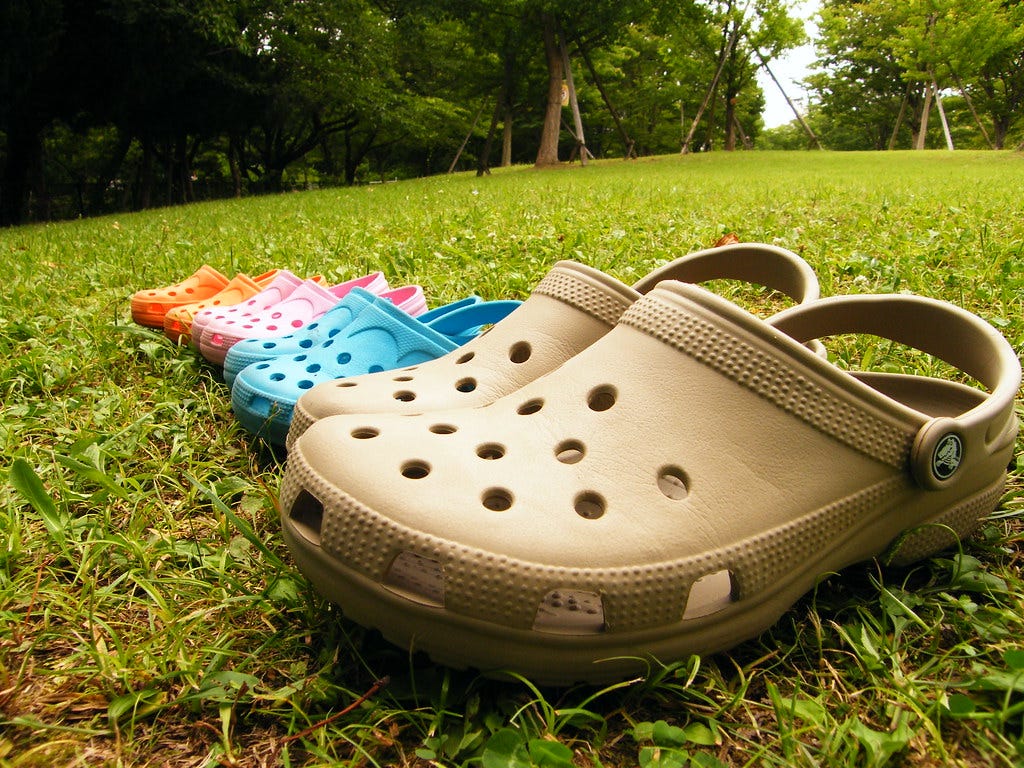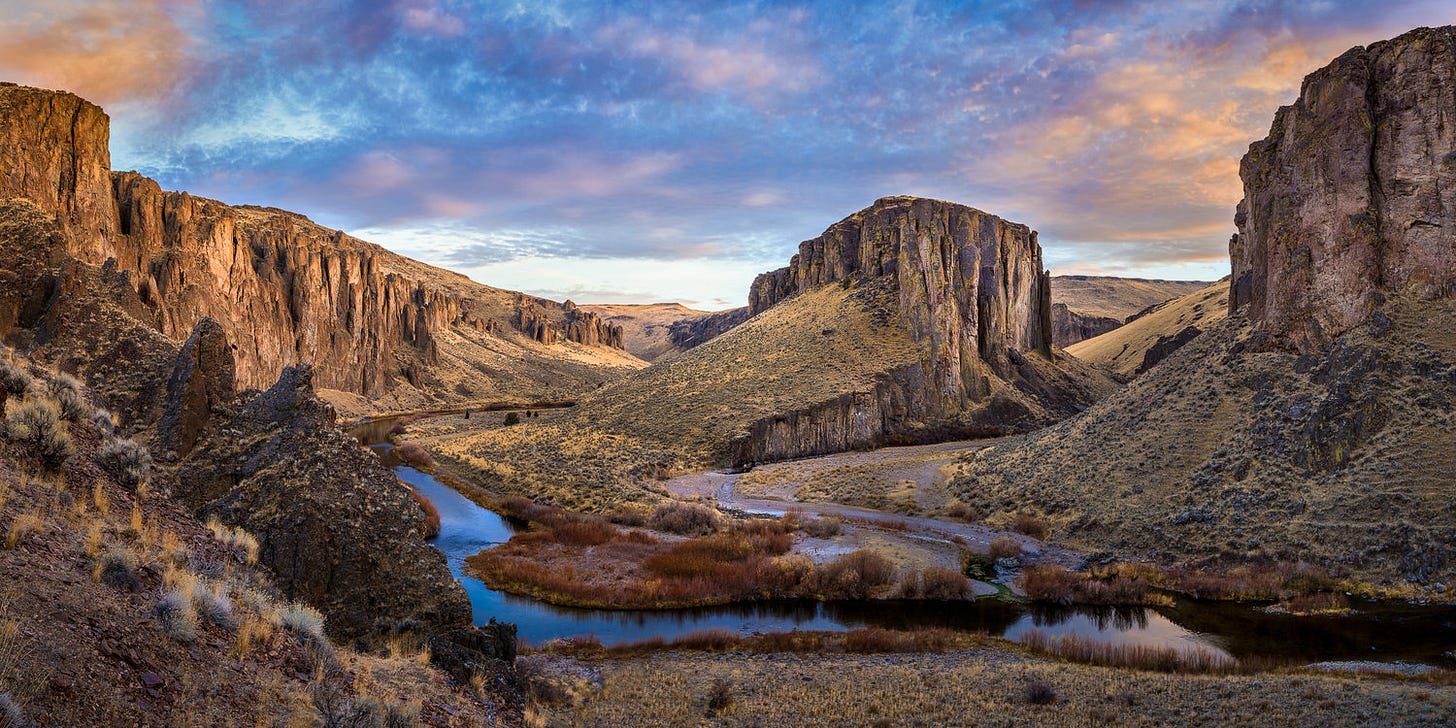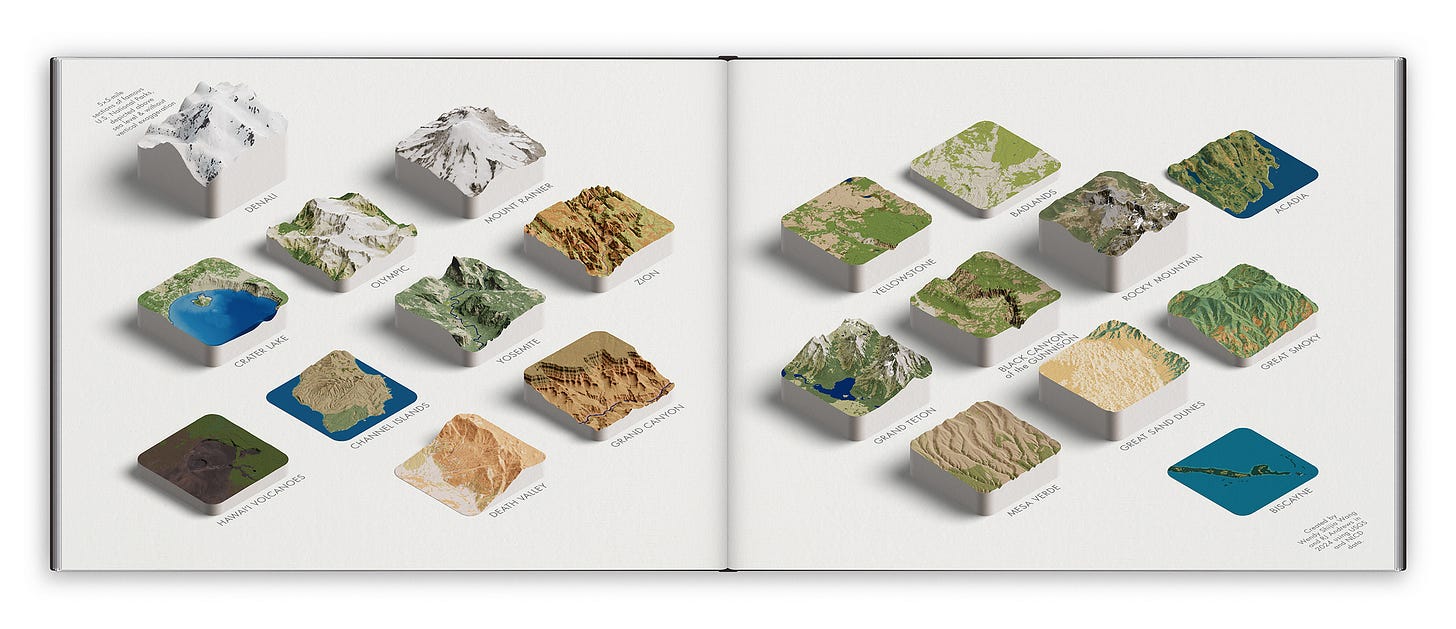Utah's At It Again
The Beehive State makes another play for federal land, plus Oregon's next hopeful national monument, candy national parks, the importance of camp shoes, dams down, missing birds, and more
howdy
Late last month, the state of Utah filed a lawsuit asking the Supreme Court to let it take control of 18.5 million acres of federal lands, saying the federal government has “failed to keep (these) lands accessible and properly managed.” The state is arguing that the federal government is unnecessarily restricting access to these lands, pointing out examples like the changes in 2023’s public land rules, which instructed the Bureau of Land Management to put conservation on equal importance with extractive industries in its land leasing policies. Utah also complained about efforts to restrict overuse of popular areas near Moab.
In a press conference, Utah’s Governor Spencer Cox said “we are not trying to take this land away. We are not trying to privatize this land …” which would be more believable if they haven’t tried to do this exact thing several times in the past.
The state claims the current rules on federal land use hurts local economies. However, Utah’s outdoor recreation currently accounts for about $8.1 billion in economic output, with over 71,000 jobs and $3.6 billion in wages in the state. I also don’t know if I feel like I trust the current state government to either not open up a whole lot of BLM land to extractive industries or to just privatize lands for maximum tourist profit, conservation efforts be damned. There are some places this has definitely worked—Nevada’s Valley of Fire State Park was established via a transfer of federal lands and that seemed to turn out OK … but it was also almost a hundred years ago, back when actual conservation was more central to both political parties.
In terms of legality, most observers seem to think Utah doesn’t have a case at all. They’re basically asking the Supreme Court to overturn an act of Congress that has been in place since 1976, and the state made the unusual play of filing suit directly with the Supreme Court, which Bloomberg Law calls “a very extraordinary procedural step.” But uh … hey, we can trust the Supreme Court to respect precedent and not legislate from the bench, right? Right?
“It scares me because while I think the suit has very little merit, the US Supreme Court last term concluded that a gun that can fire 700 rounds a minute is not machine gun, so anything can happen,” said John Ruple, the law and policy program director at the Wallace Stegner Center at the University of Utah. “What I think should be a clean simple legal question, if it gets to the Supreme Court, I’m not sure how they will approach it.”
Right.
Your Parks
Your Places
Meanwhile, In Oregon
Over in Oregon, Governor Tina Kotek is taking a different stance toward the federal government, and actively petitioning the Biden administration to declare the Owhyee Canyonlands a national monument. Last month, she joined Oregon’s two senators in asking Biden directly to use his authority under the Antiquities Act to preserve “the west’s largest expanse of unprotected wildlands,” while also voicing support for the legislation that would do the same. The bill in Congress would establish a monument, authorize grazing management for existing ranchers, hold a land trust for the Burns Paiute Tribe, and designate new wilderness areas.
As is often the case with these things, the legislation has broad bipartisan support from the local communities (though not without some opposition), but because Congress is so broken, the bill will probably sit there gathering dust and never come up for a vote.
I haven’t been to the Owhyee Canyonlands yet but it is high on my list—it’s a very remote and mostly undeveloped area of Oregon, full of stunning high desert terrain and some of the world’s best stargazing, apparently. Check out more here … and if you’ve been, I’ll happily take recommendations!
Tech Talk
Gadgets, Technology, and Hype
Are Camp Shoes Necessary?

Here’s the scene: you’re packing for a backcountry trip. Your bag is almost full. You know everything you packed is going to be digging into your shoulders and hips for a few days. You look at your comfortable camp shoes lying in your gear closet—do you make room for them?
Although the issue of specific camp shoes is one that’s up for debate and dependent on the trip, Outside spoke with a podiatrist who said there are a number of actual, tangible benefits to having an extra pair of non-hiking shoes, including letting your toes splay out, giving your feet some fresh air to prevent bacteria build up, and lots of other things.
I’ll be honest, when I go backpacking I rarely bring camp shoes, although I almost always wish I did. How about you?
The Parks in Chocolate
This story has it all: bored data scientists, U.S. National Parks, topography, a very silly challenge, and a box of chocolates.
Data visualization pros Wendy Shijia Wang and RJ Andrews asked themselves a question: “What if each U.S. National Park had a cookie-cutter section removed and placed on a giant chessboard for easy comparison?” The result is Delicious Parks, a beautiful art project that encapsulates twenty of the national parks into “bite sized” squares inspired by the candy layout in a box of chocolates.
The duo is figuring out how to best present the finished product … and they’re working on the rest of the parks, too. I don’t know about you, but I would definitely get these things in poster version.
Wildlife Crossing
Wildlife and the Outdoors
Salmon to the Klamath

The country’s largest dam removal project is just about done, and proponents are hoping the fish are going to be happy to return home. Almost all of the dams on the Klamath River on the Oregon-California border are gone (a few with fish ladders will remain). This massive undertaking also included a large-scale native revegetation effort along the new riverbanks, and biologists estimate the re-opened river channel should see a boost in Chinook salmon numbers around 80% over the next three decades.
The New York Times has a great feature on the efforts (UNLOCKED). Here’s hoping more of these old, inefficient, river-choking dams come down and we can restore the habitat of keystone aquatic species like salmon in other parts of the West.
Silent Seasons
Some 30 years ago, Bernie Krause decided to start recording the sounds of birds in Sugarloaf Ridge State Park in Sonoma County, California. A professional sound recordist, he initially went into the woods to focus on the sounds of nature to combat anxiety and ADHD … but he accidentally also captured a huge amount of data on bird populations in the region. Unfortunately, the story that data tell is not great—namely, that birds seem to have vanished from the area over those three decades.
The full story is on The Guardian and is from a few months ago, but it still hits hard.
One More Thing
Oh yeah, before I go …
For those of you with kiddos, the back to school season probably brings at least a slight bit of reprieve. But if you were lucky enough to have some outdoor time with the kids this summer, know that when they had back into the classroom, they may go through a bit of nature withdrawal. If you’re at all inclined to keep up the family-friendly trail time in the fall, you may be interested in this piece in the Washington Post (UNLOCKED) that spells out some of the kid-specific benefits of good, quality nature time.
Until then,
Happy Trails,








Excellent newsletter here, Casey! Love the mix of conservation, recreation, and odd-ball stuff!
Utah is really digging themselves into a hole (once again) - hopefully the S.C. upholds the laws from FLPMA. More great reporting for those interested - https://www.landdesk.org/p/utah-goes-for-the-ultimate-public. If BLM lands received the same amount of love and attention that National Parks do (chocolates, for gods sake!), we might not even have this insane Utah lawsuit.
Owhyee has been on my go-now list for a while! I met the ED of Friends of the Owhyee, Tim Davis, at a Conservation Lands event a while back and was moved by his love for the landscape. Can't wait to see it in person.